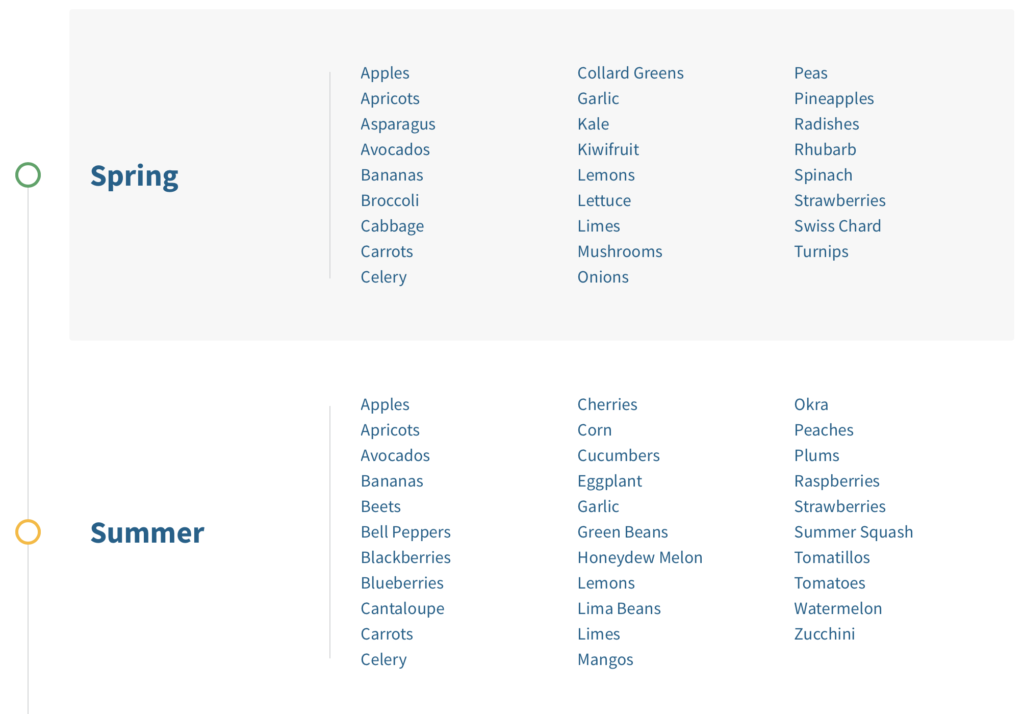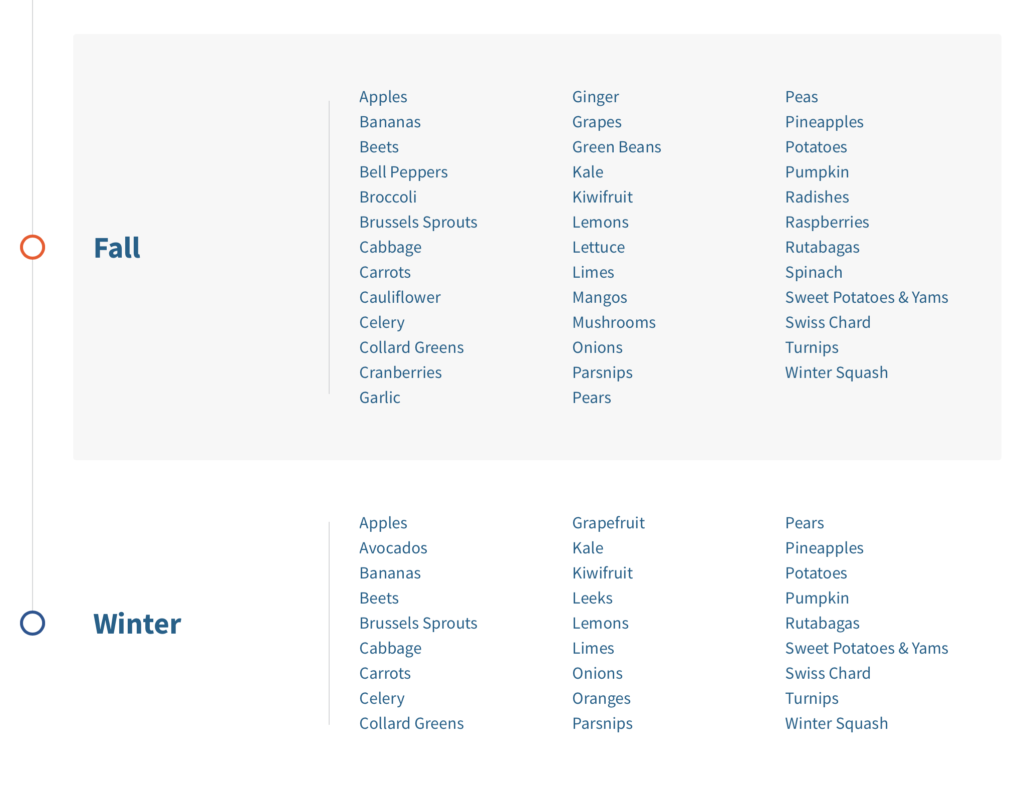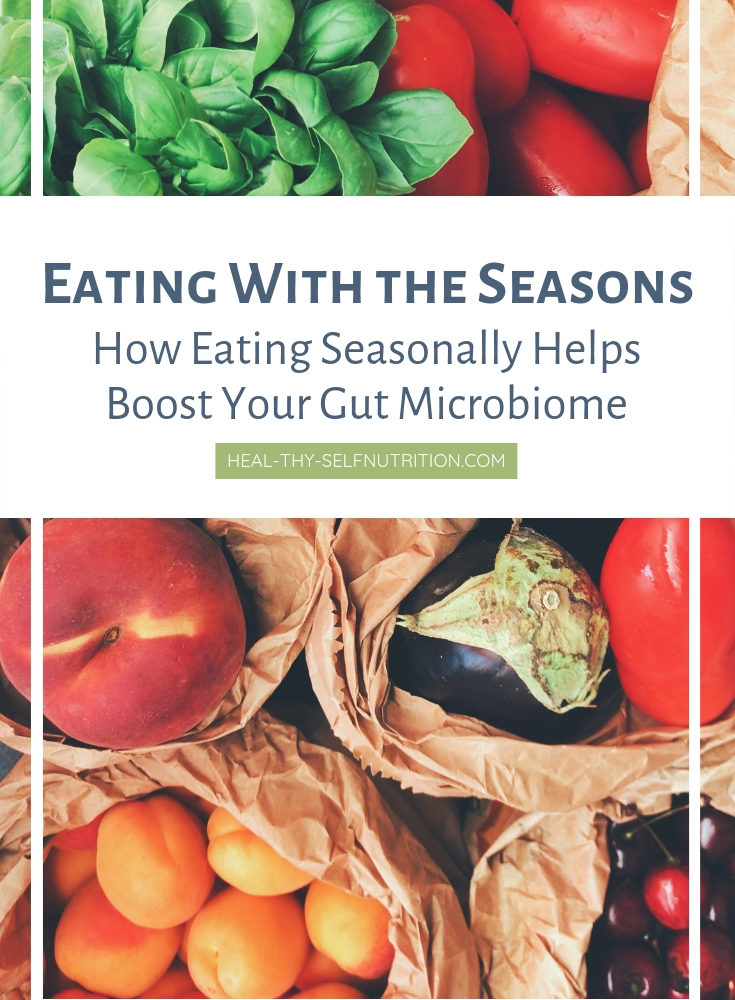Frustrated over $8 strawberries and blueberries? I know I feel ya. I’d love to eat fresh berries year-round (which is why I’m trying to grow my own strawberries and also have been making a lot of smoothies with frozen berries #hack). But the reason your strawberries are $8 over the past few months is that they’re out of season!
That’s the problem when it comes to eating seasonally. But eating with the seasons can actually help boost your gut microbiome. So, your craving for strawberries and blueberries can wait!
When you eat seasonally, you can welcome great prices and quality taste on things like apples, asparagus, avocados, bananas, carrots, celery, kale, kiwi, citrus fruits, strawberries, pineapples, spinach, turnips, and the like with the upcoming spring months.
What does it mean to eat seasonally?
Eating seasonally means to change one’s diet in accordance to the foods readily available by nature.
Consequently, not only will eating seasonally save you some money on your grocery budget, but it will also provide you with the most delicious, freshest, belly- (and environmentally) friendly foods.
Benefits of Eating Seasonally:
Best Flavor
This is because the fruits and vegetables that are in season are fresh. Also, the fully ripened produce has the best flavor, texture, and color. It is just how it is meant to be.
Superior Nutrition
Compared to getting picked early or grown in less natural conditions, the foods that are truly ready in each season have a higher nutrient value. The reason behind this is because they’ve been given the right amount of time to grow and obtain nutrients from the sun and soil.
In relation to this, on average, produce travels anywhere from 2,000-6,000 miles to get to us and our supermarkets! The nutrient density of the foods declines as soon as they are harvested so you can imagine what we are left with. Studies have shown upwards of 70% of nutrients being lost by time we get to it.
Abundance = lower price
When certain foods are plentiful, the price won’t be as high. Say goodbye to your $8 strawberries whenever they are in season! It’s also cheaper for farmers to produce. Cash in on this.
Local/Organic
Seasonal food is more likely to get grown closer to home. This then allows you to know where your stuff came from!
It being local or organic also reduces the use of pesticides, herbicides, and genetic modification because it doesn’t need as much ‘help’ to grow or transport.
Variety
Eating seasonally allows your taste buds to explore new flavors. As a result, it helps you pick things you may never have tried, and get creative with incorporating them into your dishes!
Diversity
Eating seasonally allows you to provide your gut microbiome with a diverse array of foods – which it loves. Therefore, having diversity in the gut helps boost the immune system.
Harmony
Once we begin to eat and live by the tune of how nature intended, not only do we become more aware, appreciative, and connected to our food supply, but our bodies thank us.
In conclusion, the foods that are ready during specific seasons provide exactly what the body needs: detoxification from the long winter of heavier foods (as seen in the plethora of leafy greens in the spring), hydration (as seen with more berries, watermelon, cucumbers in the summer) and cooling (as seen in the emergence of apples in the fall to help rid the body of heat to prepare for winter).
These foods were here before us and will remain here after us – they must be on to something.
Below are a list of foods and their corresponding seasons. Print these and put them on your fridge or shopping list!


To eating with the seasons and happy bellies!
xos

Ask Amanda Session
Newsletter Opt-In
Resources
Connect With Us!
No Widgets
"Secondary" needs some widgets.
